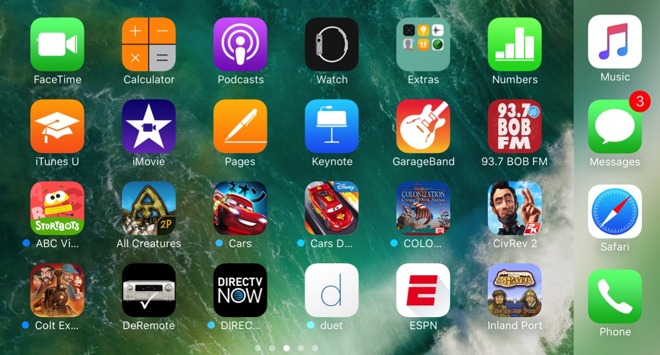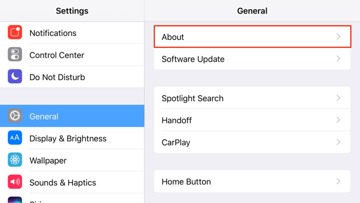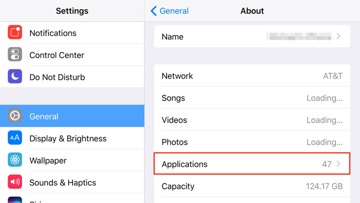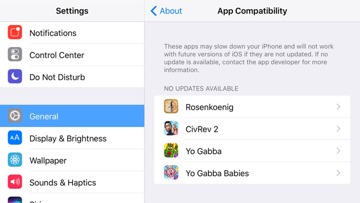The day has come -- Apple will disallow 32-bit apps from running on iOS 11. If you haven't updated because of worries of incompatibility, AppleInsider shows you how to identify which apps installed on your iPhone are 32-bit allowing you to decide if you want to upgrade or wait.

Apple's Settings pane in iOS 10.3 allows users to easily check for installed 32-bit apps, and to see if there are updates available.
To check, open Settings. Tap on General. Tap on About, and select Applications. This brings up a list of the installed apps that are 32-bit.
In our test device, we've had four apps -- two games and two educational titles -- that are 32-bit with no updates. Since we first started talking about this, only one of the apps got a 64-bit update -- and it wasn't "Civilization Revolutions 2" by the big publisher.
Educational and entertainment titles remain the heaviest-hit by the shift, as they have historically been. That said, of a library of over 1,000 educational and game titles aimed at children in one library, we lost four apps -- more stopped working between iOS 8 and iOS 9.
Not the first time
It is unfortunate that some apps will be left behind in the shift, but every computer user has dealt with a change from on-high affecting software libraries before. The earliest releases of OS X included a Classic OS9 environment that wasn't perfect -- which was killed seven years later in 2007 with the release of 10.5.
To facilitate the shift to Intel processors, Rosetta was included with 10.4.4 in 2006, and killed when 10.7 shipped five years later in 2011. These are just recent examples for Apple -- Windows users have the same pain, just sometimes with less advanced notice.
This has all happened to us before -- it happened with the 68K to PowerPC shift, with every big OS migration, and with the shift from PowerPC to Intel. As with any architecture shift, some users get left behind.
None of this is a surprise
Apple is responsible for the safety and speed of iOS and the iPhone. It has told developers for three years, since a note in December 2014, that updates to software needed to include 64-bit support. Apple is clearly not responsible for ensuring that all iOS software works forever, on every combination of iOS and hardware.
Apple has been enforcing the requirements since June 2015. When iOS 9 rolled out, it warned that 32-bit apps could cause slowdowns, with iOS 10.3 warning in a more forceful fashion that 32-bit app support would be discontinued in a future iOS revision -- which is now upon us with iOS 11.
If you have an app that won't make it past the end of the 32-bit compatibility era, blame the developer -- there's been ample warning. If the app is mission-critical, then don't upgrade your iPhone or iPad's OS, and don't plan on moving the app to new hardware -- because 32-bit support isn't coming back.



